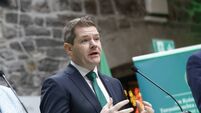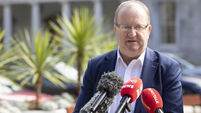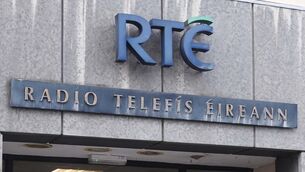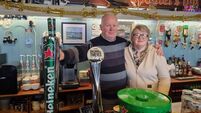Paschal Donohoe — new role for pragmatic centrist at the heart of Irish politics
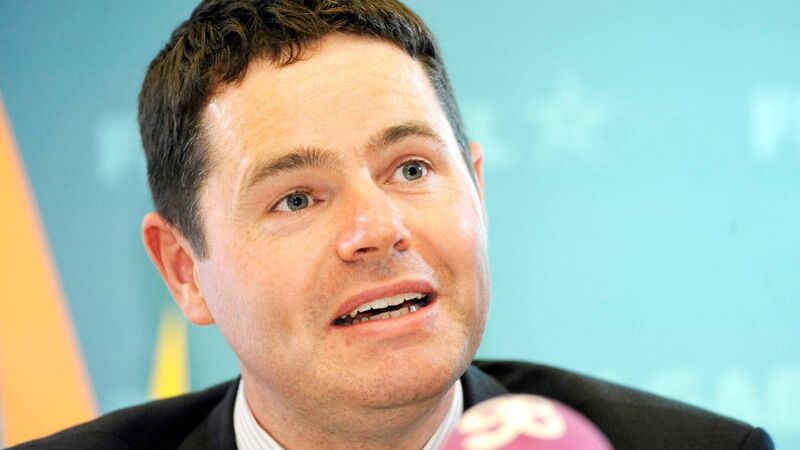
Then senator and Dublin Central Dáil candidate Paschal Donohoe in May 2009. It would be two more years before he won that seat, going on to become transport, tourism, and sport minister during his first Dáil term. Picture: Sasko Lazarov/Photocall
“I am departing public life in Ireland.” With those words Paschal Donohoe brought to a close 11 years at the Cabinet table and the guts of a decade as one of the most recognisable figures in Irish politics.
It also ends a sustained period linking him to a move abroad to take up a senior role within world financial organisations.
Born in Blanchardstown in West Dublin, Mr Donohoe attended St Declan’s CBS in Cabra before studying economics and politics at Trinity College Dublin. He moved to London and worked for many years with Procter & Gamble, becoming a marketing director.
He and his wife Justine would return to Dublin in 2003, as Mr Donohoe eyed up a career in politics.
Having settled in Phibsboro, he was elected to Dublin City Council in 2004, but missed out on a Dáil seat in 2007, finding himself squeezed out by the Bertie Ahern political machine and again in the 2009 by-election caused by the death of Tony Gregory, when Maureen O’Sullivan won the seat.
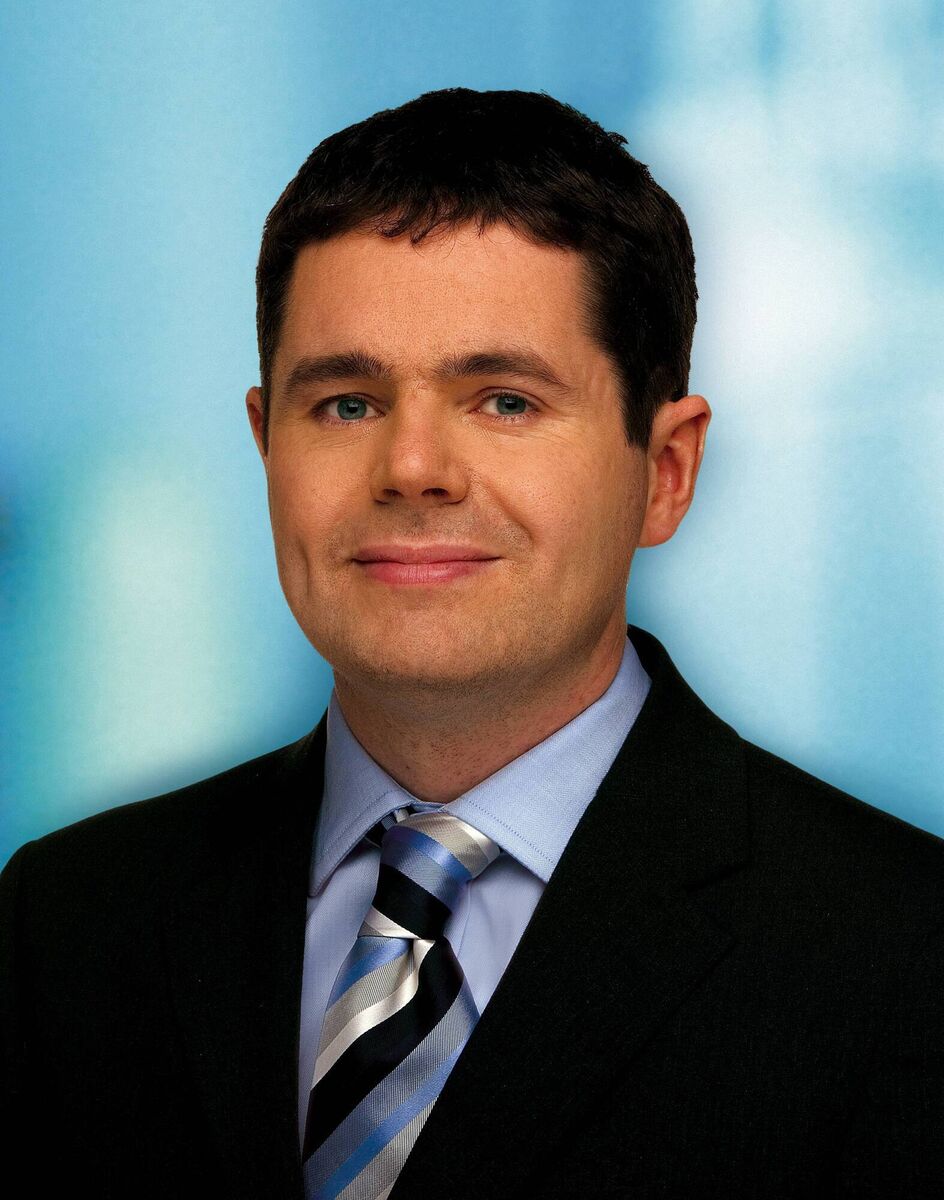
He was elected to the Seanad in 2007, becoming spokesperson on transport and the marine.
But in 2011, he would top the poll in Dublin Central as Fine Gael swept to a coalition government with Labour.
Seen as one of the bright young things of Fine Gael, Mr Donohoe was overlooked for a junior ministry initially by taoiseach Enda Kenny, but found himself appointed European affairs minister in 2013 following Lucinda Creighton’s resignation from the party.
In 2010, as secretary of the Fine Gael parliamentary party, Mr Donohoe sided with Richard Bruton in the failed heave against Mr Kenny and had joked to this paper at the time that it was “off to the gulags” for him.
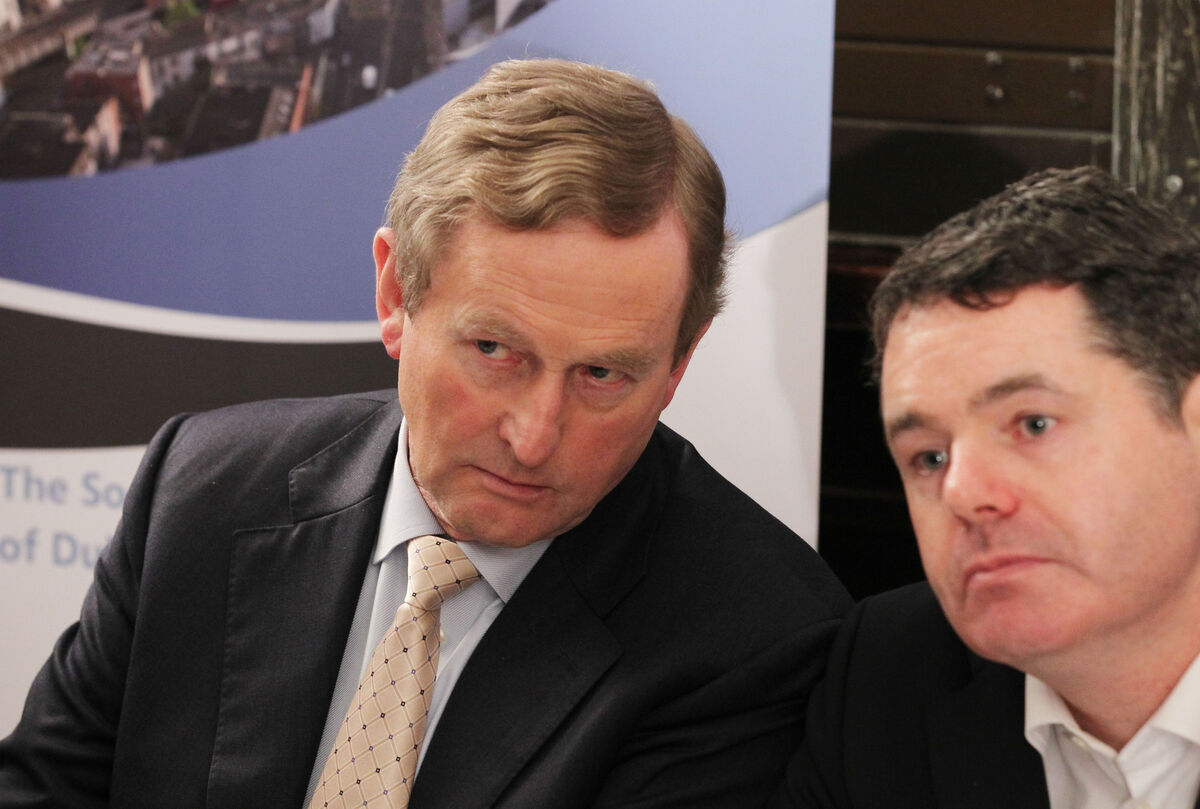
But if Mr Kenny bore any resentment, it didn’t show as Mr Donohoe was elevated in 2014 to the senior ranks, being made transport, tourism and sport minister, his term coinciding with strikes by staff at most of the major transport bodies and the sale of the Government’s remaining 25% stake in Aer Lingus.
Upon the formation of the Fine Gael minority government, he was made public expenditure minister, having held on to his seat in a drastically reduced Dublin Central constituency.
In the high-profile role, Mr Donohoe’s fidelity to the government and Fine Gael was evident as he was rarely off message, and even rarer was sensed to be seeking to advance personal ambitions.
He picked up some of the role of then finance minister Michael Noonan, who was ill, and was thought of highly in Fine Gael circles.
When Mr Kenny stepped down in 2017, the speculation immediately was that Mr Donohoe would seek to replace him, but he swiftly backed fellow Dubliner Leo Varadkar and was made finance minister along with his public expenditure brief.
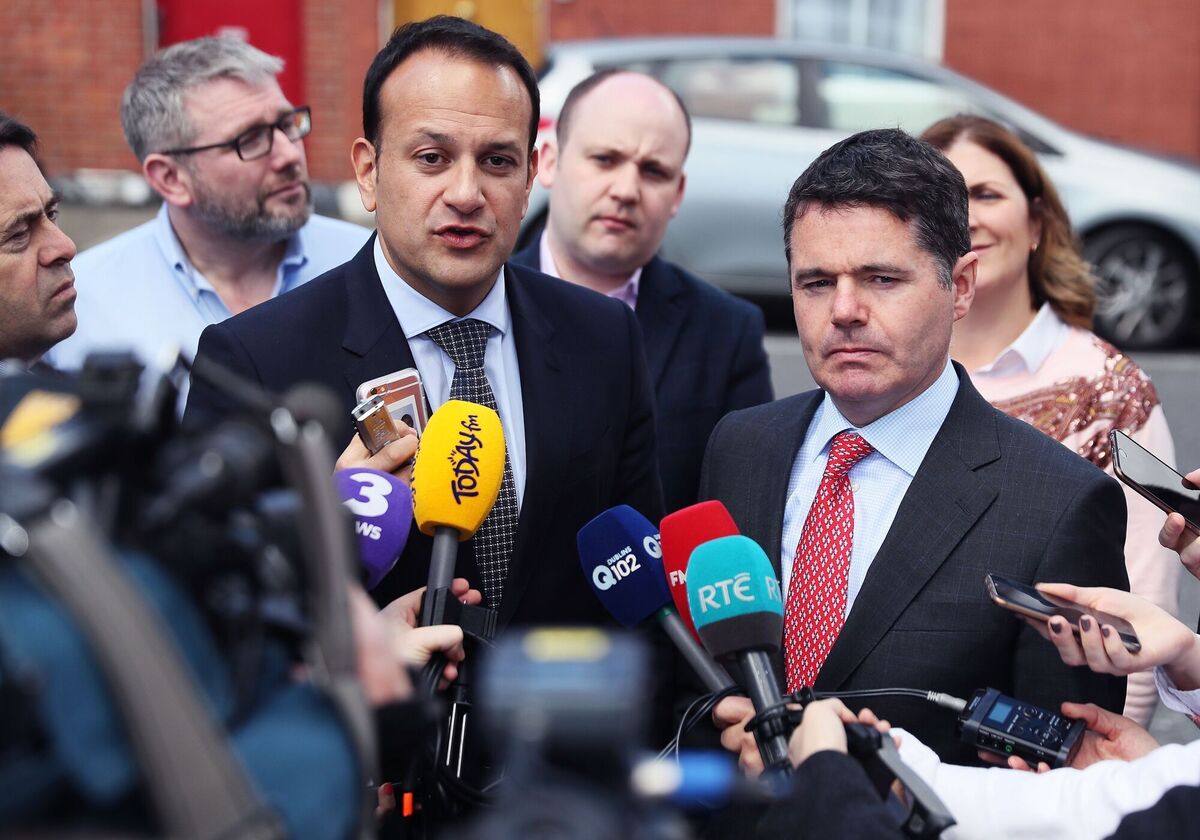
In the combined role, Mr Donohoe’s pragmatism, incrementalism, and centrism were to the fore, even if his prudence was mocked by some both within and outside his party.
Having retained his seat in 2020, the 2016 election came back to haunt him as it was revealed that he had failed to declare the cost of assistance provided by a supporter, businessman Michael Stone. He would apologise to the Dáil and face a confidence motion. In 2020, he moved back to public expenditure, returning to finance in 2022.
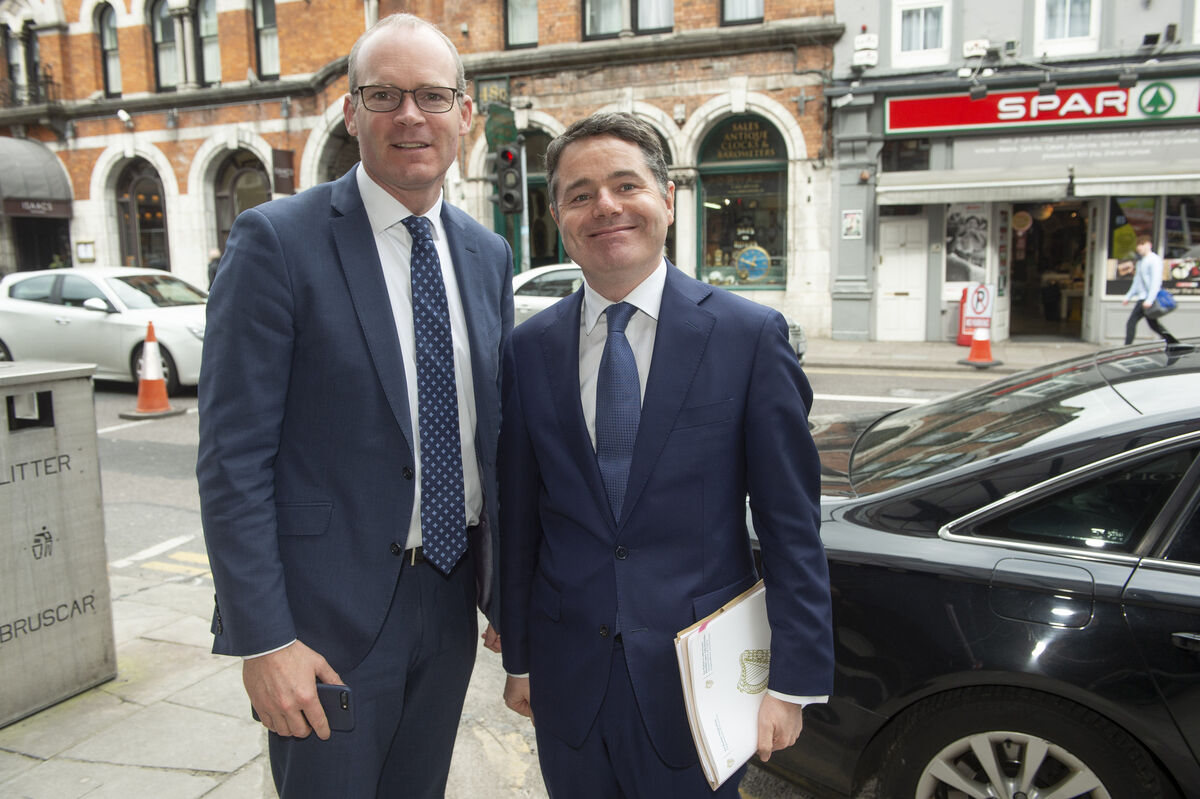
Along the way, he had been elected for three terms as the chair of the Eurogroup of finance ministers.
In 2024, he once again declined to challenge for the Fine Gael leadership amid rumours that he had been eyed up to lead the International Monetary Fund, but would contest the general election and hold on to his seat once more. But the role of managing director at the World Bank has tempted him to leave Irish political life, a role he begins next week.




